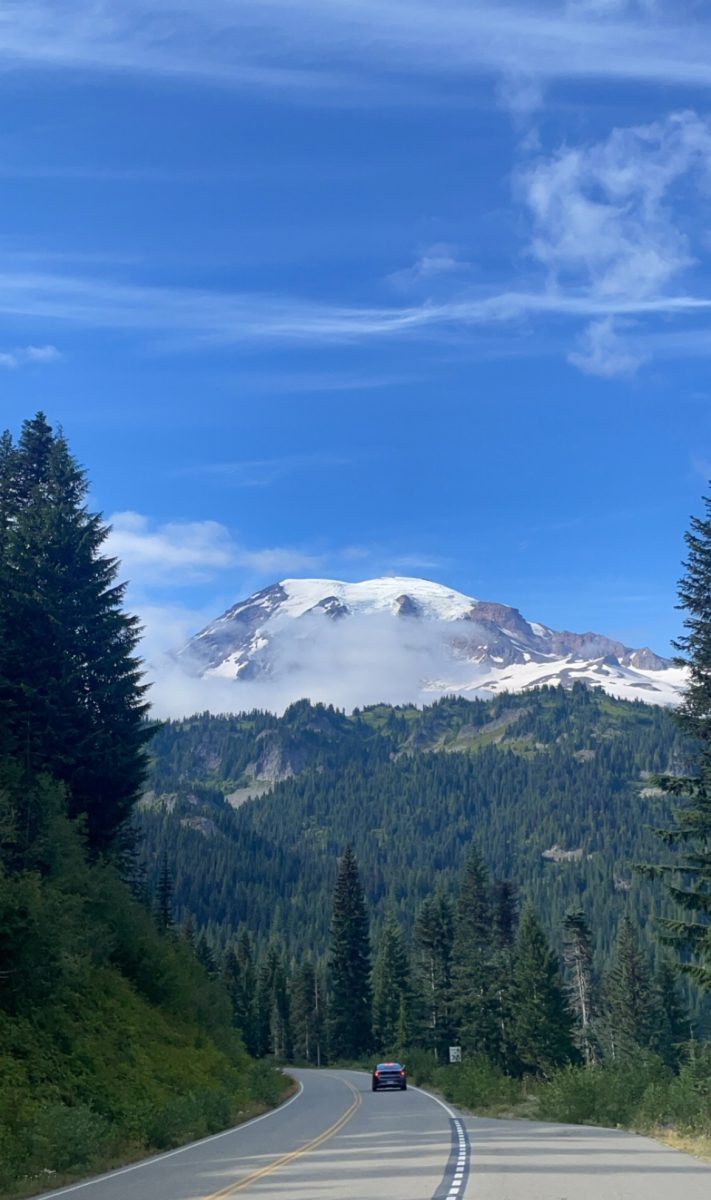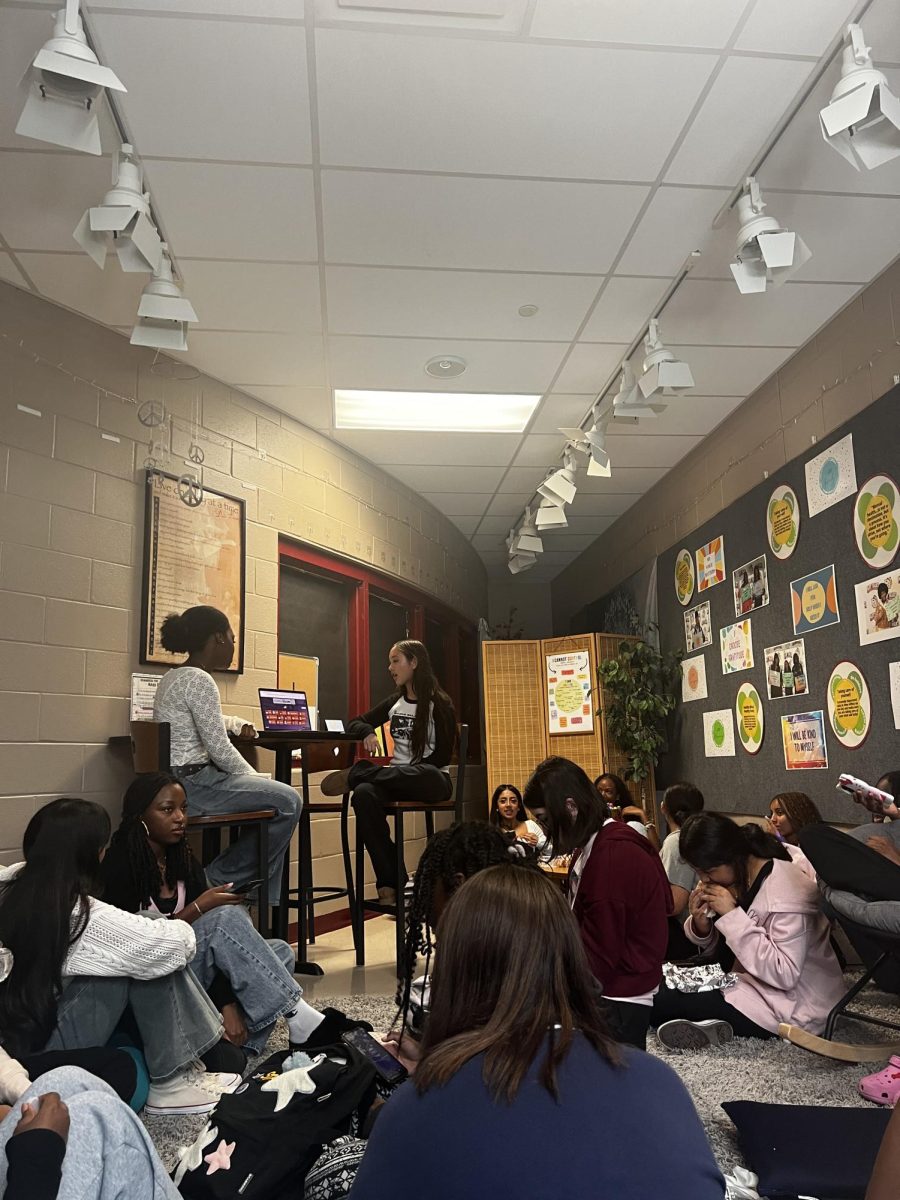What comes to mind when you hear the word “slavery”? Maybe it’s 17th-19th century African people impossibly wedged together within sordid conditions of slave decks, carried by ships as non-human cargo. Or, maybe it’s the men, women, and children throughout time who may have been promised better for their lives — financially or emotionally — but ended up being exploited sexually, or forced to work for wages of little to nothing.
Although the examples listed above are relevant, I’ll bet what you didn’t imagine was the person sitting right next to you, or anyone that you know. Teens Against Trafficking (TAT) is a Maryland statewide program located in middle and high schools with education as one key point of their work. Funded by Araminta, a Maryland-based, anti-trafficking nonprofit organization fittingly named after the birthname of Harriet Tubman, TAT addresses human trafficking by raising awareness — specifically to the notion of just how close to home the issue actually is. Paint Branch junior Nhu-May Buynak serves as the appointed school representative for the TAT chapter here, alongside her vice-representative Jeannine Avudufu and Jeremiah Curay, teen support lead at Araminta. Together with their loyal club members and sponsor, PB social worker Ms. Miller, TAT has been brainstorming the many ways in which to bolster their presence at PB, including fundraising and potential club collaboration. Nhu-May explains that “with the help of Araminta [they] have funds to host events, so [they’re] planning right now.”
At fourteen, Nhu-May, in her freshman year, originally learned about trafficking, and became interested in helping via a presentation on human trafficking given in PB health classes about two years ago. She states that “[she] realized that not many people knew how prevalent it is and how much it affects people around us.” She specifies that Candace Parrott, who is Senior Director of Programs at Araminta and responsible for Public Awareness for the Maryland Human Trafficking Task Force, especially sparked her interest during the presentation because she mentioned helping people specifically from PB.
According to the National Human Trafficking Hotline, during the sixteen-year period between 2007 and 2023, Maryland put out an estimated 7,096 signals (calls, texts, emails, and online reports) to the National Human Trafficking Hotline. Of these, 1,406 were found to be from victims and survivors of human trafficking. Maryland is a very centralized location with many interstate highways and international airports, making it a frequent passing point for traffickers. The Maryland Human Trafficking Task Force claims that, “for these reasons, victims and traffickers have told law enforcement that Maryland is a ‘goldmine’ for human trafficking.”
The US Department of State defines human trafficking as “a crime whereby traffickers exploit and profit at the expense of adults or children by compelling them to perform labor or engage in commercial sex.” However, human trafficking occurs and appears in a wide variety of forms that are not exclusively sexual in nature. From child soldiers to domestic workers to farms and factories, human trafficking exists. It can take place right inside one’s home on the internet, or be perpetuated by one’s own loved ones. Polaris, another anti-trafficking non-profit organization, points out that while victims and traffickers span all borders of identities and socioeconomic status, “evidence suggests that people of color and LGBTQ+ people are more likely to be trafficked than other demographic groups” as a result of “generational trauma, historical oppression, discrimination and other societal factors and inequities.”
Specific to Maryland, the National Human Trafficking Hotline has also recorded that the majority of Maryland’s trafficking reports are for “residence-based commercial sex” as well as “domestic work,” and that most victims and survivors are adult female foreign nationals. “There’s so many different types,” Nhu-May begins, “whether it’s a parent having their child in a trafficking ring, them being victimized through social media . . . it’s not just a foreign issue.” Neither is it an issue separate from others, considering the many other factors that increase vulnerability like history of abuse, an unstable living situation, or uncertain citizenship status. “If we can stop it from happening in the first place, then we can avoid those [other] things that happen,” Nhu-May affirms.
Teens Against Trafficking is designed to fight this immense problem, so while it’s clear that human trafficking is a devastating issue that can leave people feeling hopeless, everyone has the power to enact change, and believing in that power is a crucial initial step. It starts on a smaller scale like joining a club or organization — like TAT — whose mission you feel passionate about. To be part of Teens Against Trafficking is beyond a membership; it’s a commitment to the promotion of human rights, a universal value we should all share. It is also a great means of practicing how to advocate for yourself and other people, especially those who desperately need their voices amplified.
Nhu-May can attest to this, confessing how she originally “felt intimidated taking on the role of lead and also appointed representative.” But, she smiles, “[she’s] really learned how to speak in front of [her] peers [and] connect with people over one issue.” She notes that, since everyone involved is passionate about it, the environment is one of empowerment and drive, where you can learn to work through your nerves for the purpose of something much greater — it’s a mutually beneficial experience you wouldn’t want to miss. “I realized I want to do this,” Nhu-May continues, “so I pushed and motivated myself to be able to carry out plans and ideas I had . . . It was definitely empowering.”
So how does one get involved? Aside from attending bi-weekly meetings on Fridays for Teens Against Trafficking, you can educate yourself with the plethora of easy-to-comprehend yet detailed resources online about trafficking, as well as join another organization outside of school. The issue at hand doesn’t have to be trafficking specifically, either. But, finding something you’re passionate about to fill your time with is incredibly fulfilling to yourself and potentially those around you. When asked what she most wishes for people to understand, Nhu-May expresses that she wants “people to see that human trafficking is something that can affect people in our community [and recognize] that they have their own voices and that their voice matters . . . [T]hey can take the actions to help us forward our mission.”
Use your voice to express yourself, for those who fought for that right, and continue to fight. It is one of the most powerful tools at your disposal, one that cannot ever truly be silenced as it is intrinsically your own.









































DonnaPia • Jan 17, 2025 at 12:16 PM
It’s happening in so many places that seem like normal neighborhoodsso
this group is greatly needed to raise awareness to prevent abductions and
other criminal actions that victimize a
person or members of a marginalized group.
Keep up the good work.
DonnaPia Vocci